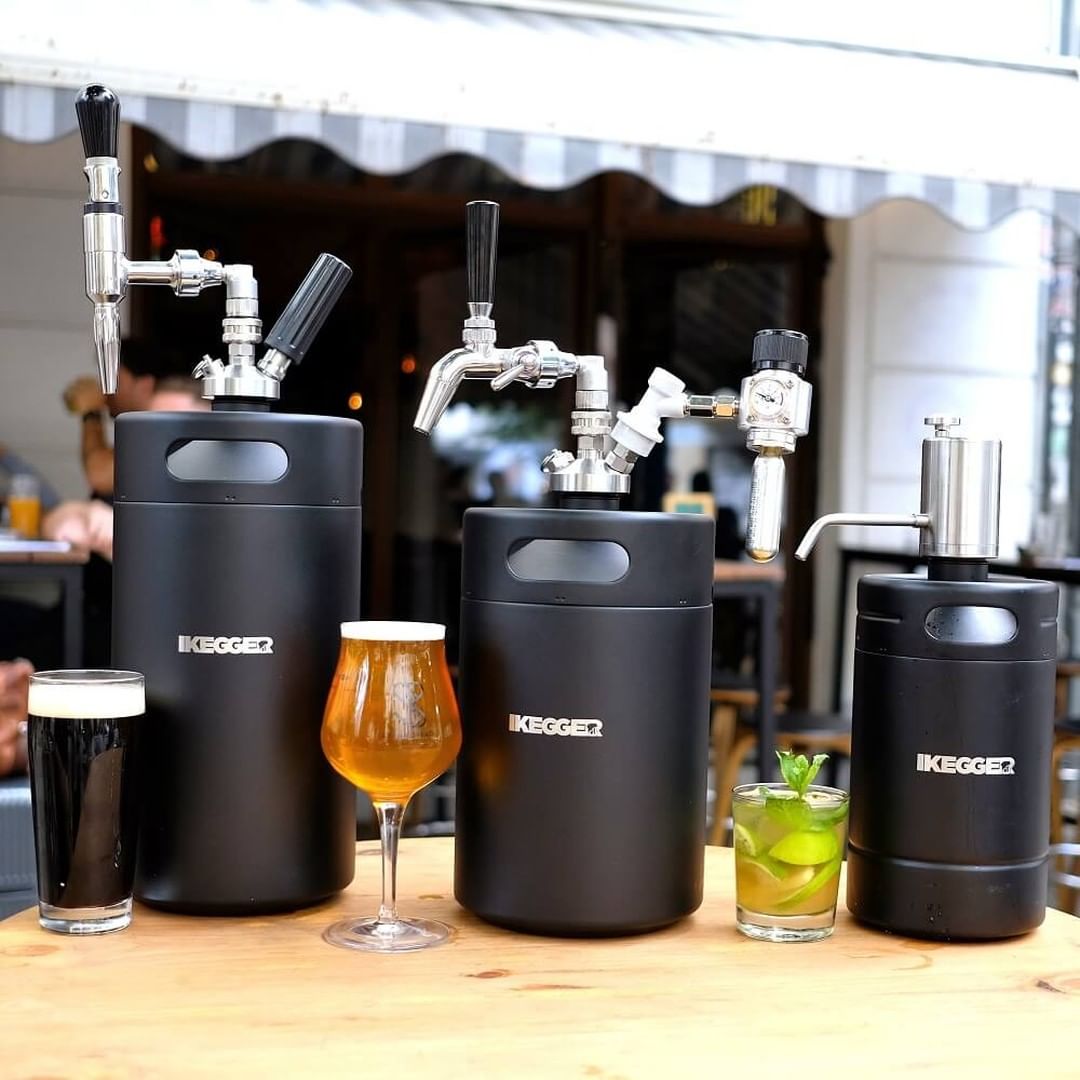
Sustainable Beverages | Minimizing Single-Use Packaging with Keg Systems
Share
In today's environmentally conscious world, finding sustainable solutions is becoming increasingly important, especially in the food and beverage industry. Single-use packaging, such as bottles and cans, contributes significantly to waste and pollution. However, there is a sustainable alternative gaining popularity: keg systems. In this article, we explore how keg systems can minimise single-use packaging and promote sustainability in the beverage industry.

The Problem with Single-Use Packaging
Single-use packaging has become a significant environmental concern. Every year, millions of plastic bottles and aluminium cans end up in landfills or pollute our oceans. These materials take hundreds of years to decompose, causing long-term harm to the environment. The production, transportation, and disposal of single-use packaging also consume valuable resources and contribute to carbon emissions. When you do use cans and bottles, remember to put them into the recycling bin or even better, take them to your local return and earn station!
Introducing Keg Systems
Keg systems offer a sustainable solution by eliminating the need for single-use packaging. Kegs are reusable containers typically made of stainless steel that can hold a variety of beverages, including beer, wine, cocktails, and even non-alcoholic options. These systems consist of kegs, taps, and CO2 canisters to maintain the beverage's freshness and carbonation.
Environmental Benefits
By utilising keg systems, several environmental benefits can be achieved:
1. Reduction in Waste: Kegs are designed for repeated use, significantly reducing the need for single-use packaging. This leads to a significant decrease in the number of bottles and cans that end up in landfills or as litter.
2. Energy and Resource Conservation: Kegs require fewer resources to produce than single-use bottles and cans. The energy and materials saved in the manufacturing process contribute to a lower carbon footprint.
3. Lower Carbon Emissions: Transporting kegs is more efficient than transporting individual bottles or cans. Fewer trips are needed to deliver the same quantity of beverages, resulting in reduced carbon emissions from transportation.
Cost-Effectiveness
Implementing keg systems can also be financially advantageous for businesses in the beverage industry. While there is an initial investment in kegs and equipment, the long-term savings can be substantial. By eliminating the need to purchase single-use packaging repeatedly, businesses can reduce their packaging costs over time. Additionally, the marketing appeal of sustainability and eco-friendliness can attract environmentally conscious consumers.
Consumer Perception and Demand
Today's consumers are increasingly aware of environmental issues and are actively seeking sustainable products and services. By adopting keg systems and promoting their sustainability efforts, beverage businesses can tap into this growing market demand. Offering beverages on tap from keg systems can become a unique selling point, attracting environmentally conscious consumers who appreciate the reduced environmental impact of the product.

Supporting Local Breweries and Producers
Keg systems also present an opportunity to support local breweries and beverage producers. By using kegs, businesses can showcase locally crafted beverages and strengthen partnerships within their communities. This approach fosters a sense of sustainability, locality, and support for small businesses, resonating with consumers who value these aspects.

In a world where sustainability is crucial, the beverage industry has a responsibility to minimise its environmental impact. Keg systems offer a sustainable solution by significantly reducing single-use packaging waste. From reducing waste and conserving resources to attracting environmentally conscious consumers, the benefits of keg systems are numerous. By embracing this eco-friendly approach, businesses in the beverage industry can contribute to a more sustainable future while enjoying the long-term cost savings and customer loyalty that comes with it. Together, we can raise a glass to sustainable beverages and a greener planet.
